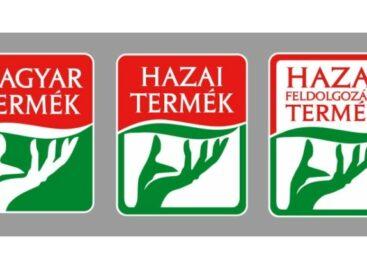Hungarian companies are keen to get their money
According to Balázs Vanek, country manager of Atradius, Hungarian companies pay special attention to collect debts from the firms that owe them money. In Hungary there is less uncollectible intercorporate debt (1 percent) than in the region (1.2 percent). About 67 percent of Hungarian companies (the average in Eastern Europe is 55 percent) reported that B2B receivables primarily have become uncollectible due to the partner’s bankruptcy or liquidation. Atradius Collections helps customers collect debt in many ways, in both Hungary and abroad. Mr Vanek told that the sooner the collection procedure starts, the bigger the chance for its success. Atradius has 50 of their own offices all over the world, offering a global, 96-percent coverage, which can be of great help to Hungarian exporting companies.
Intrum Justitia is Europe’s leading debt collection company which has been present in the Hungarian market since 1993. Hajnalka Laczkó, the head of the company’s trade business unit highlighted that payment willingness had improved. She added that large companies are now better prepared for shaping their own debt collection policy: Intrum Justitia’s experience from the last 3 years is that the cases they get from customers are getting younger. Based on more than 20 years of experience, the company recommends contacting a debt collection specialist at the latest 30 days after an invoice’s payment deadline expired. Depending on the sector, within 120-180 days the collection’s success rate is around 70 percent. Intrum Justitia has its own offices in 21 countries and partner offices in 160 countries.
PwC Hungary specialises in auditing, tax advisory and business counselling services. PwC Hungary partner Anita Mekler opines that companies also often ask for help for developing cost cutting and efficiency increasing strategies. In many cases customers ask PwC to prepare them for tax inspections or to assist them in ongoing check-ups by the tax authorities. Ms Mekler’s view is that executives are now more confident about the short- or long-term prospects of their company. What causes them problems – irrespective of the sector – is the lack of experts.
Deloitte Hungary is active in four fields: auditing, tax advisory, business management and financial counselling services. More than 600 Hungarian and international experts help customers with their problems. Ákos Demeter, a partner of Deloitte’s counselling unit reckons that technological development changed consumption habits, and because of this he called our attention to a new service. Digital influence is the extent to which shoppers use their digital devices (smartphone, tablet, etc.) before going shopping or in-store. One third of purchases are now under digital influence and those service providers who react to this in time can achieve a competitive advantage. In strategic cooperation with recommendation system developer Gravity, Deloitte offers innovative technological services to retailers for making customised offers to shoppers, not only online or via smartphone but also in stores. Recommendation systems like this can increase sales by 10-20 percent a year.
MAZARS is one of the leading audit, tax advisory and business counselling firms in Hungary. Tax director Heléna Csizmadia told our magazine that one of the most exciting issues will be connecting the invoicing programmes of businesses with the central IT system of the tax authorities. MAZARS also offers legal counselling and HR services to partners. The company’s flat rate tax advisory service – provided by phone or via e-mail – is very popular among customers. MAZARS’ transfer pricing services are even appreciated by competitors. Their ‘one stop shop’ system combines legal counselling with tax advisory by a legal office that is part of the international Marcalliance network.
Related news
Related news
What do shoppers say about the new retail tools?
At the beginning of the year, Consumer Panel Hungary GfK–YouGov asked panel…
Read more >Special foods ranking: 1. Diabetic, 2. Low-carb, 3. Lactose-free
Different special diets and foods are frequently discussed, and it…
Read more >Community in the community
The recent MasterWorks business workshop of Hungarian Product Nonprofit Kft.…
Read more >




